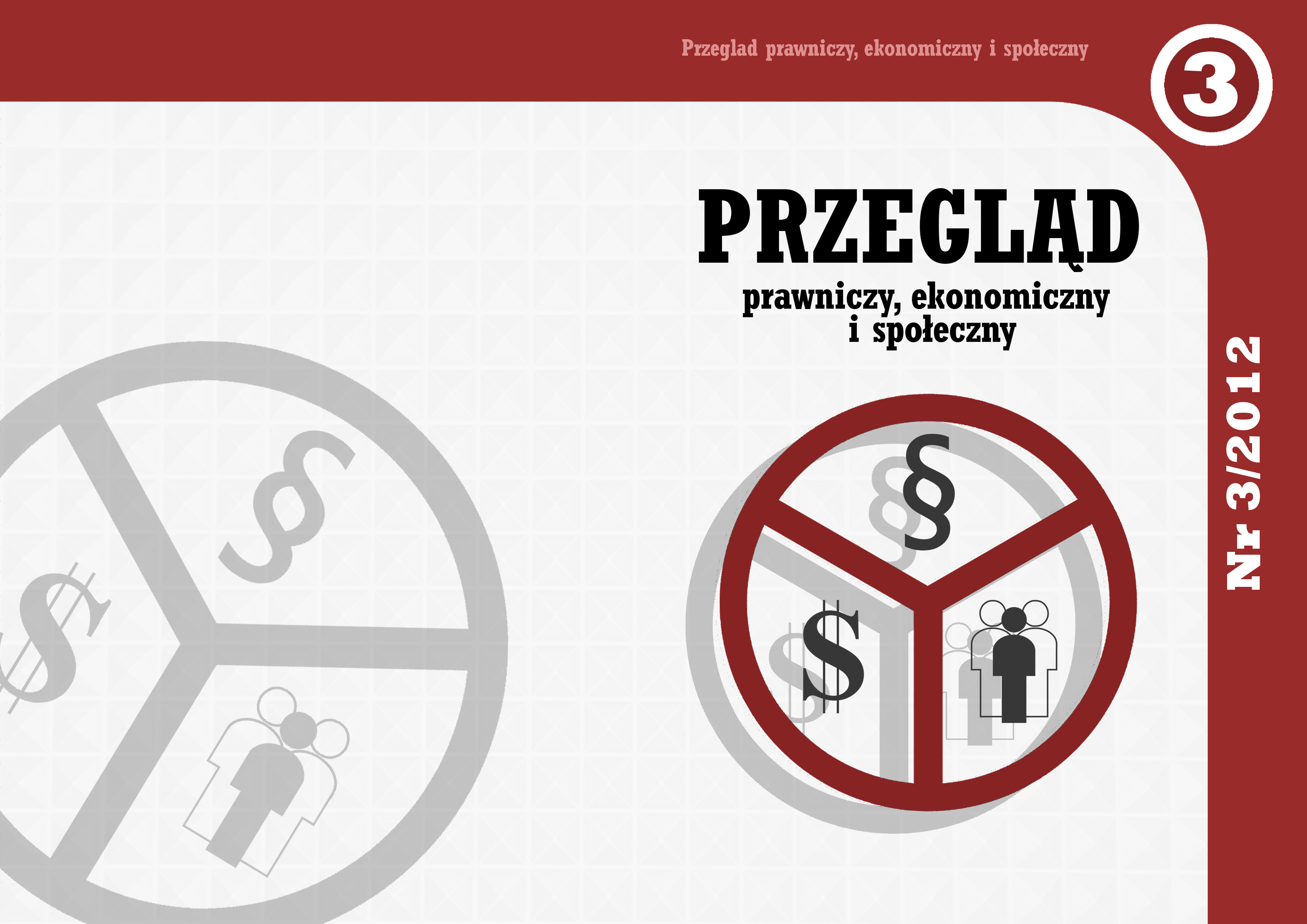Rola glos w tworzeniu prawa na przykładzie nowelizacji z dnia 29 czerwca 2007 roku dotyczącej przepisów karnych ustawy - Prawo własności przemysłowej
The meaning of judicial glosses in creation of law on the example of amending on 29th of June 2007 criminal regulations of The Industrial Property Law Act
Author(s): Mariusz ZelekSubject(s): Law, Constitution, Jurisprudence, Civil Law
Published by: Wielkopolska Rada Młodzieży
Keywords: judicial glosses;The Industrial Property Law Act
Summary/Abstract: Creation of law unifies, for legislative purpose, the achievements of other academic fields, which are indispensable to register the changes in economical, social and cultural life. The meaning of science in this process is to form statements about adequacy of the measures, that are to achieve the legislative goals, thus to adequacy of regulations and legal norms. Furthermore the specific legal fields systematize the norms of particular branches of law and form their basic rules, especially those, that are not directly expressed in an individual regulation.A judicial gloss is a scientific commentary to a judicial decision and contains its analysis. A gloss may be approbative or critical (entirely or partly) towards the decision. The Polish Constitution of 1997 doesn’t include doctrine’s opinion to the sources of generally binding law. Nevertheless there is no doubt, that it is of great importance for the process of creation and interpretation of law. The uniform opinions about a particular institution are especially important. Sometimes, however, doctrine’s representatives have opposite opinions about particular institutions. In this case there is no hint as for direction, which the legislative works or jurisdiction should follow.Such a situation occured on the ground of criminal regulations of The Industrial Property Law Act of 2000. The problem concerned the issue of “placing on market”, which is a feature of some criminal offences included in the aforementioned act. The Polish Supreme Court found, that “placing on market” is defined as first, and only first, transmission of goods marked with a forged trademark to traffic by their producer or importer. Such an interpretation caused huge controversy in doctrine, the effect of which were many judicial glosses written by the opponents and supporters of this opinion. The opponents claimed that “placing on market” includes also the acts of trading goods marked with a forged trademark.The effect of the debate between doctrine’s representatives was the amending of art. 305 sec. 1 of The Industrial Property Law Act which took place on the 29th of June 2007. The amendment added the new feature, expressed as “performing traffic”, that introduces a separate way of committing this crime. This settled the question that “placing on market” should be interpreted only as the first transmission of goods. However, the legislator didn’t notice, that “placing on market” is also used in other criminal regulations both in the law of industrial property and other branches of law. “Performing traffic” as a feature of crime was introduced only to this particular regulation (art. 305 sec 1.), thus on the ground of other regulations, such actions are lawful.The example described, shows the how big is the influence of doctrine on the creation or interpretation of law. The judicial glosses, considered to be a part of the doctrine, may cause a more or less uniform judicial interpretation to come into being. They may also change the interpretation and contribute to creating or modifying regulations.The specific character of judicial glosses is that they always refer to an individual judicial decision and discuss concrete issues or problems, that arose while interpreting particular regulations. It often occurs, however, that their significance reaches far beyond the glossed decision or regulation, on which this settlement was based. This mustn’t be forgotten while creating or changing law, and it unfortunately happened like this in the described instance.
Journal: Przegląd prawniczy ekonomiczny i społeczny
- Issue Year: 2012
- Issue No: 3
- Page Range: 52-58
- Page Count: 7
- Language: Polish

